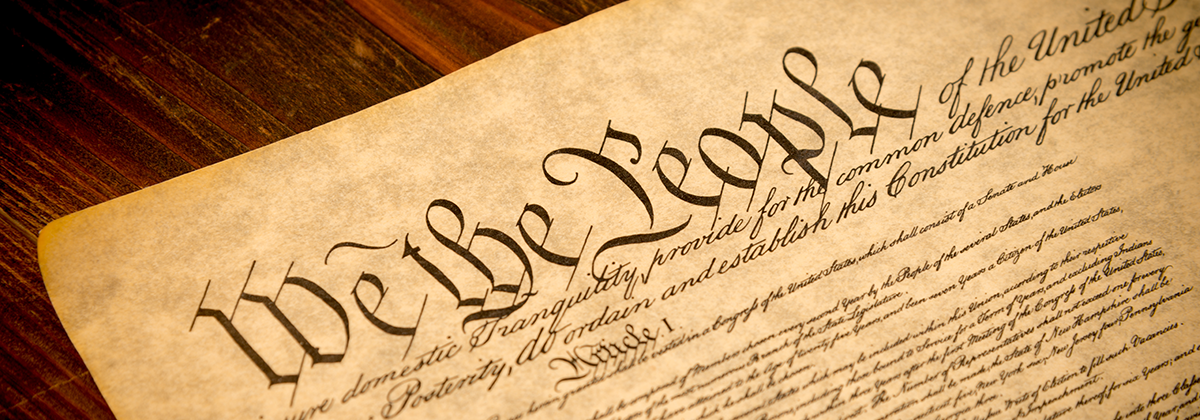Have you heard rumblings about the 25th Amendment in the past few days? I sure have, and from different sources, too. To be “in the know,” let’s quickly review this section of the Constitution. You may find one or more of the sections to be of great interest.
The Twenty-fifth Amendment concerns presidential succession and disability. “In case of the removal of the President from office or of his death or resignation, the Vice-President shall become President.”
Why Do We Have the 25th Amendment?
So, why do we have the 25th Amendment? It’s a crucial part of our Constitution, designed to ensure the smooth functioning of our government in times of crisis or incapacity. At the dawn of the 20th century, the President’s responsibilities increased as the nation grew in population and prominence. The world became more dangerous. Mobility made tragedies more possible. Medicines were developed, and life expectancy was extended. It became possible in the mid-20th century to have a critical illness that was debilitating but not necessarily life-ending. This historical context underscores the need for an explicit constitutional (legal) provision. The 25th Amendment defines and provides for presidential succession when the President cannot perform the duties of the office.
What Are the Essential Points of the 25th Amendment?
Here is a quick summary of the notables:
Section 1 clarifies that the Vice President becomes the President (not an acting President) if/when the President vacates the Presidency.
[Side note: I’ve heard people groan about any V.P., regardless of party. People intensely disliked President Lyndon B. Johnson when he was Vice-President. He was sworn into office in the aftermath of the Kennedy assassination, and he had the nation’s support. V.P. George H.W. Bush was highly experienced, but people loved First Lady Barbara Bush far more than her “straight-laced” husband. The fact is, the Vice-President becomes the President if/when the President vacates the Presidency. It’s the law, regardless of America’s emotions at the time].
Section 2- specifies the procedure for filling the office of Vice-President, should it become vacant. Section 2 has been used twice: President Nixon appointed Rep. Gerald R. Ford to fill his vacancy, and then Ford filled the V.P. vacancy with Governor Nelson A. Rockefeller when he became President after Nixon’s resignation. [Side note: Vice-President Rockefeller had his detractors because of his family’s name and history].
Section 3- provides a transfer of power to the Vice-President if the President declares themself unable to discharge his duties. It allows the Vice-President to become acting President when a situation warrants such need. This section has been used three times while Presidents have undergone medical procedures (for instance, surgery). Upon recovery, they assume the duties and power of the office immediately.
I read the following section with great interest. Note the requirements:
Section 4 transfers the President’s power should they become incapacitated (i.e., unable to discharge the office’s duties and unwilling to transfer power to the Vice-President. The Vice-President and a majority of cabinet members must declare in writing that the President is unable or unwilling to fulfill the duties of the office.
In a Section 4 transfer, the President cannot return to the office without a written declaration that “no inability exists.’
If four days pass and there is no opposition, the President can take back the office.
But, what if…?
If there is a dispute between the President, the Vice-President, and the cabinet, Congress must settle it with a 2/3 majority in the House and Senate.
Suppose 21 days pass, and there are no necessary majorities in both houses of Congress. In that case, the President returns to his/her office.
If Congress votes the President out of office, the Vice President becomes President. However, the President can again try to regain his/her office.
Remember, the ultimate goal of the 25th Amendment is to always keep a legal head of state in charge, ensuring the stability and continuity of the government.
The 25th Amendment is not a means for political enemies to declare a President unfit for office. That could conceivably happen during every Presidency! This Amendment protects the President from being unlawfully deposed from office without cause.
This is Common Sense Civics and Citizenship.🇺🇸
Join the Conversation! https://www.facebook.com/commonsensecivics

